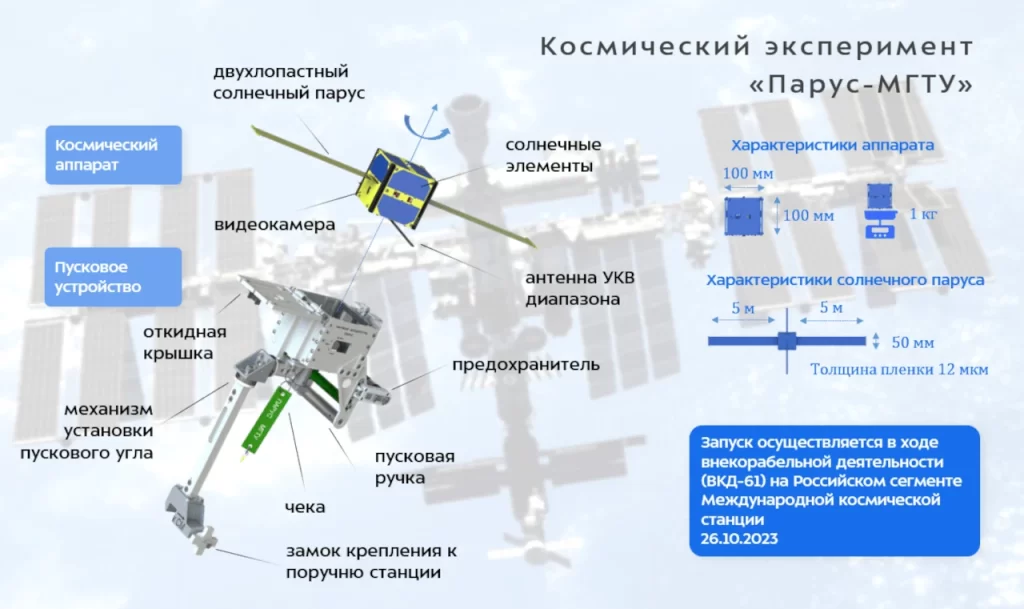Using a specialised launch device, Russian cosmonauts Oleg Kononenko and Nikolay Chub launched the student satellite “Parus-MGTU” during their spacewalk as part of an experiment to investigate the motion of solar sails. The transmission is in the hands of “Roscosmos.”
The primary objective of Kononenko and Chub’s spacewalk has been accomplished: they have severed the secondary radiator loop of the “Nayka” module from the main module loop. This action was required to disconnect the secondary radiator loop that experienced a leak on October 9. In addition, the cosmonauts photographed and inspected the non-sealed location to enable specialists on Earth to ascertain the source of the breach.
Following the satellite’s launch, the cosmonauts shall oversee the progression of the spacecraft’s solar sail deployment. Developers anticipate that the satellite’s thrust and orbital modifications can be achieved by adjusting the sail length exposed to solar-charged particles.
Bauman Moscow State Technical University students developed the launch device. Ensuring a linear trajectory for the nanosatellite is an essential requirement, which may not always be attainable when astronauts manually detach the spacecraft. This device is anticipated to be compatible with forthcoming satellites deployed into space by astronauts.

Before the launch, Kononenko and Chub implemented a radar experiment called “Napor-MiniRSA” on the “Nauka” module, designed to monitor the Earth’s surface. It was subsequently connected and put into operation. The investigation is orchestrated by the Rocket and Space Corporation “Energia” with the following objectives: environmental monitoring, emergency monitoring, and natural resource management.
If Kononenko and Chub are granted further time, they will be responsible for substituting the securing plates that fasten the cables in their docked position on the “Zvezda” service module.
It was 20:49 Moscow time (17:49 UTC, 23:19 IST)when the Small Research Module “Poisk” hatch was opened. The astronauts will be outside the International Space Station for 6 hours and 52 minutes. They have been on the ISS since September 15, 2023, and this is their first spacewalk during this mission. It is also the sixth Russian spacewalk of the year. Chub is off the ISS for the first time to work, and Kononenko is on his sixth spacewalk.

